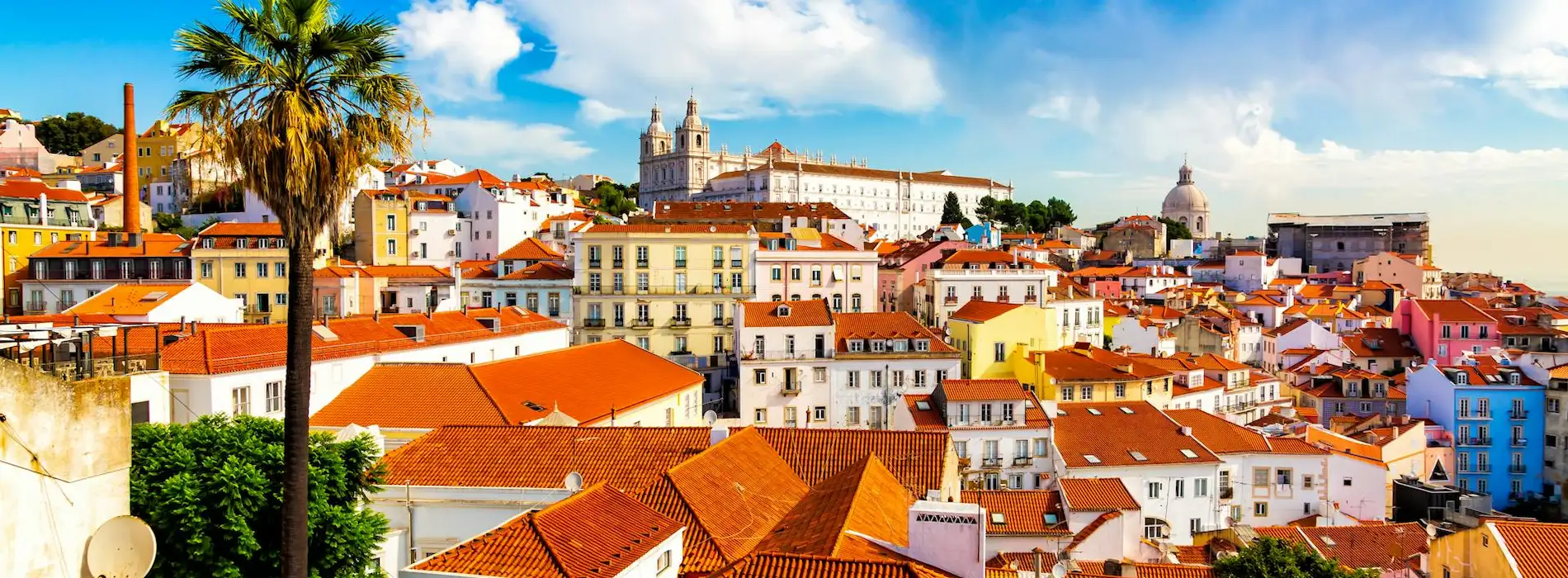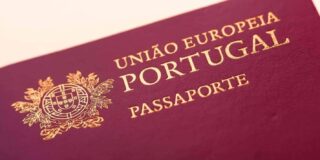If you are a legal resident in Portugal and would like for your family to join you in the country, one way to do that is through a Family Reunification Visa. The primary aim of the visa, officially called the D6, is to maintain the family unity, letting close family members join anyone who relocated to Portugal.
In this guide, we’ll go over what the Portugal Family Reunification Visa entails, what family members are included, and the necessary documents and requirements that need to be fulfilled.
You’ll also find out about:
- Key benefits of the Family Reunification Visa
- The application process
- Renewals and extensions
- Applying for citizenship
What is the D6 Family Reunification Visa Portugal?

The Portugal Family Reunification Visa is a temporary residence permit that lets family members join you in Portugal if you are a legal resident.
The residence permit is valid for the same amount of time as your visa in Portugal. Unlike the tourist visa, it isn’t a stand-alone visa that people can apply for; it is always tied to a close family member’s visa and residency status.
In simple terms, you can only apply for and come to Portugal on a Family Reunification Visa if a close family member is already a legal resident.
Key Benefits of the D6 Family Reunion Visa
Most people know that Portugal has beautiful landscapes and plenty of historical cities, but there are more benefits to the Family Reunion Visa than an amazing place to live with your loved ones.
Work and Study Opportunities
The D6 Visa enables family members of Portuguese residents or citizens to join the local workforce and education system. Holders can legally seek employment or start their own businesses, and they can enroll in both public and private educational institutions, ranging from primary schools to universities.
Access to the National Health System
Visa holders gain access to Portugal’s national healthcare system, which offers comprehensive medical services. This includes primary care, specialized treatments, and emergency services at public hospitals and clinics.
Pathway to Residence and Citizenship
The D6 Visa serves as a stepping stone to permanent residency and Portuguese citizenship. Family members can apply for permanent residency after residing in Portugal for five consecutive years.
They can also apply for citizenship, provided they meet additional requirements such as basic knowledge of the Portuguese language.
Travel within the Schengen Area
One of the significant perks of holding a D6 Family Reunification Visa is the freedom to travel across the Schengen Area.
This group of 27 European countries allows border-free travel, greatly enhancing personal and professional opportunities. Family members can visit other countries for business, leisure, or educational purposes without needing separate visas.
Eligibility for NHR Tax Regime
Holders of the D6 Visa may qualify for Portugal’s Non-Habitual Resident (NHR) tax regime, which offers a favorable tax environment for new residents.
Under the NHR scheme, beneficiaries can enjoy significant tax exemptions on foreign income for up to ten years. This includes pensions, dividends, and certain types of employment income, which can be taxed at a flat rate or exempt, depending on circumstances.
Is NHR ending?
The State Budget Law for 2024 determined the end of the NHR regime from 1st January 2024. However, certain individuals can still apply up until 31st March 2025, and the scheme is being replaced by the Tax Incentive for Scientific Research and Innovation, which has now been implemented.
Who is eligible for the D6 Visa in Portugal?
In terms of Portuguese immigration law, who qualifies for family reunification is rather strict. As per the government’s definition, only the following members can qualify:
- Spouse
- Children
- Parents
- Registered partner
Required Documents for the D6 Visa

Before starting the application process, you must gather all the required documents. Not only will this increase your chances of success, but it will also cut down on the application time if the authorities don’t require additional information.
- Completed application form
- Passport photograph
- Passport or Travel Document
- Proof and copy of residency status in the home country
- Travel reservations or flight tickets
- Travel Insurance
- Copy of the EEA/EU citizen’s passport or EEA/EU residence card
- Marriage Certificate and/or unabridged birth certificate
It should be noted that, unlike other visas, applicants don’t need to prove accommodation or submit a statement of responsibility if they will be traveling with the Portuguese resident.
This is contingent on the Portuguese resident being on the same flight reservation, travel insurance, and application form. However, the Portuguese resident does need to provide proof of where the family members will be staying.
There is a financial requirement as well. The sponsor’s income (the person with Portuguese residency) must be equal to or greater than the Portuguese minimum wage (€820 per month in 2024) and also have at least 50 percent more (€410) to support a second adult (if applicable).
D6 Visa Application Process
The D6 Visa application process goes through several steps. Usually, it begins with the Portuguese resident (main applicant) applying for a family reunification permit at Portugal’s Agency for Immigration, Migration and Asylum (AIMA).
AIMA will review this initial application within 60 days. Once they make a decision, they send a written statement to the applicant and notify the Ministry of Foreign Affairs. This means the family member can formally apply for the D6 Visa outside Portugal.
In most countries, this process is done through VFS Global, an international agency tasked with handling all visa applications for European Union countries.
While it might vary depending on where the family member is applying from, generally, the application process is:
- Step 1: In addition to gathering the required documents, download the visa application form and fill it out
- Step 2: Book an appointment at the nearest Visa Application Center to have your fingerprints and photo taken
- Step 3: Once you have made your application, you will need to pay your visa application fee. The VFS service fee is €40, and the application fee is €90
- Step 4: Attend your Visa Application Center appointment and bring your documents and completed visa application form
- Step 5: Wait for an outcome and travel to Portugal when approved
If the family member is already in Portugal with legal entry, they can apply for the Family Reunification Visa directly with AIMA.
After the family member enters Portugal on the D6 Visa, they must go to AIMA to register as residents and receive a permit to stay there long-term. While the Family Reunification Visa is being processed, the family member can travel to Portugal on another visa, such as the Schengen Tourist Visa.
D6 Visa Renewal and Extensions
If the Portuguese resident has a temporary visa or a temporary residence permit, family members will receive a Family Reunification Visa valid for the same duration as the main applicant’s temporary residence permit.
However, family members will receive a two-year residency permit if the main applicant has a permanent residence permit.
After the initial two-year period, family members can obtain an independent residence permit if the family tie persists.
How to renew the D6 Visa
The D6 Visa holder will get a temporary Portuguese residence permit from AIMA within four months. This permit can be renewed after two years (the first renewal) and three years (the second).
Applying for Portuguese Citizenship with a D6 Visa
After five years of legally authorized residence in Portugal, family members can apply for a long-term residence permit and Portuguese citizenship.
To obtain citizenship, they typically need to pass a basic test assessing their Portuguese language skills.
If you’re considering becoming a Portuguese citizen, there’s good news: Portugal allows dual citizenship.
This means you won’t need to give up any existing citizenship, as long as the other countries involved also permit dual citizenship.
Frequently Asked Questions About the Family Reunification Visa

What is the Family Reunification Visa in Portugal?
The Family Reunification Visa allows non-EU/EEA residents living in Portugal to bring their family members to join them legally. It aims to facilitate family life and integration by enabling families to live together.
Who can apply for the Family Reunification Visa?
Any legal resident in Portugal holding a valid residence permit can apply for family reunification. This includes those on temporary or permanent residence, work visas, or investment visas.
Which family members can be included in the application?
Eligible family members include spouses, minor children, adult dependent children, parents dependent on the applicant, and sometimes siblings if they are dependent or under guardianship.
What documents are required for the application?
Applicants must provide proof of relationship (such as marriage or birth certificates), proof of residency in Portugal, financial means, health insurance, and accommodation details.
Is there a language or integration requirement for the visa?
Generally, the initial reunification visa does not have strict language or integration requirements. However, family members might need to integrate later for permanent residency or citizenship, by passing a Portuguese language test at a minimum of A2 level.
How long does the application process take?
Processing times can vary, but due to application backlogs, they typically range from a few months to over half a year.
Can family members work or study in Portugal on this visa?
Yes, family members who join the primary visa holder can work or study in Portugal. This provides them with the opportunity to contribute economically and socially.
How long is the Family Reunification Visa valid?
The initial permit is usually aligned with the duration of the primary applicant’s residence permit and can be renewed accordingly.
What are the costs associated with applying?
The fees for family reunification can vary depending on the number of family members and the Portuguese consulate or service center processing the request.
Can family members apply for permanent residency or citizenship later?
Yes, eligible family members can apply for permanent residency after living in Portugal for five years. They can also apply for citizenship after five years, provided they meet residency and other legal requirements, including basic knowledge of the Portuguese language.
Can I work in Portugal with a D6 Visa?
Yes, individuals holding a D6 Family Reunification Visa are allowed to work in Portugal. Since this visa grants residency rights similar to the family member they are joining, it includes the right to employment or self-employment activities.
Can I study in Portugal with a D6 Visa?
Yes, D6 Visa holders can study in Portugal. The visa allows access to educational institutions under the same rights as Portuguese residents.
Is health insurance mandatory for the D6 Visa?
Yes, health insurance is mandatory during the application process for the D6 Visa. Applicants must provide proof of adequate health insurance coverage, which includes emergency medical services and hospitalization.
Can I apply for permanent residency or citizenship with a D6 Visa?
Yes, after living in Portugal legally for five years with a D6 Visa, holders may apply for permanent residency. They can also pursue Portuguese citizenship if they meet additional requirements, including language proficiency.
Are there any language requirements for the D6 Visa application?
There are no language requirements for the initial D6 Visa application. However, if applying for citizenship after meeting the residency period, applicants must demonstrate basic proficiency in Portuguese, typically at the A2 level.
Can I extend my D6 Visa in Portugal?
Yes, the D6 Visa can be renewed within Portugal. The renewal process involves submitting updated documents proving compliance with residency requirements. This visa aligns with the residency permit duration of the sponsoring family member.
Can I travel within the Schengen Area with a D6 Visa?
Yes, D6 Visa holders can travel freely within the Schengen Area. The visa grants the same privileges as other long-term Portuguese residency permits, allowing for visa-free travel in all 27 Schengen countries.
What happens if my D6 Visa application is denied?
If a D6 Visa application is denied, applicants may appeal the decision through Portugal’s legal system or submit a revised application addressing the reasons for denial. Seeking assistance from immigration professionals can also improve the chances of approval.







